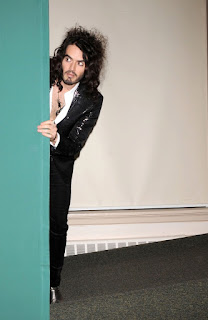In recovery, it’s important to never take ourselves too seriously. That’s not to say that we should make light of every serious situation or deflect with humor on a regular basis. But, there are times when comedy is welcome relief. After all, if we can’t laugh at ourselves from time to time… Over the years there have been a number of comedians who have used their spotlight to enlighten people about addiction. Used their forum to do their part to help shed some of the stigma of addiction.
If you are in recovery, you may already be aware of some comedians with firsthand experience. Although, a number of them have had tumultuous times in recovery, some even succumbing to their addiction. Chris Farley and Mitch Hedberg may come to mind. Yet, there are still a number of comedians who will leave you in stitches who have managed to accumulate significant lengths of time in recovery. Craig Ferguson, Marc Maron, Artie Lange and Russell Brand. The list is longer than that, but you get the point; there are many comedians in recovery. And, it’s something to be thankful for.
One of the reasons that comedians in recovery are so important, is the fact that many of their jokes deal with subject matters that only we [recovering addicts and alcoholics] truly understand. There is something nice about it, being in on a joke feels good. Everybody in the audience is laughing, but for completely different reasons. Esoteric catharsis.
Recovery: Freedom From Our Addictions
Setting the laughs aside. In the battle against stigma, comedians in recovery can also be champions of change. Showing the general public the realities of addiction, and the possibility of addiction recovery. They can use their enormous fan base to shed light on what addiction is; a debilitating form of mental illness, not a moral failing.
A person who has spent copious amounts of time talking about addiction, when he is not making people laugh, is British comedian Russell Brand. There is a good chance that you have seen movies he is in (Forgetting Sarah Marshall) or his specials on Netflix (‘The Messiah Complex’ or ‘The Emperor’s New Clothes’). His comedy or commentary is not for everyone. But, it is hard to argue with many of his observations about addiction and recovery. Some of what he says may actually help your own recovery. This is a fellowship, we all learn from one another’s experiences.
Brand published a new book this week: Recovery: Freedom From Our Addictions. Which, he spoke at length about with People Magazine. He talks about the Steps in his book, being an active member of the Program for over 14 years. In his book, he has a bit of fun with the Steps (Step 1: “Are you a bit f—ed?,” Step 2: “Could you not be f—ed” and Step 3: Are you, on your own gonna un-f— yourself?”). He shares his story, from childhood onward. As well, as his experience in recovery:
“[Now] I don’t struggle with [addictive] urges because the program I live by helps me to remain serene and prevents those urges from arriving,” Brand said to People. “If I feel those urges — even though I don’t feel them so often because I’m working the program — I talk to other people and I do stuff for other people and I meditate and pray. There’s a whole sort of series put in place for when I feel those urges.”
He added:
“The idea that life is meant to be punishing has really taken hold,” he says. “The two things [I want people to know] is that pain is a signal and it’s telling you to change. And happiness is a possibility.
“We don’t choose between having a program and not having a program. We choose between having a conscious program and an unconscious program. When you’re not working a program consciously you’re working an unconscious program – the program of your childhood, the program of your culture, the program of your media. So it’s very important to become awakened.”
Stephen Colbert interviewed Brand, recently:
If you are having trouble watching, please click here.
Hope of Recovery
We all can interpret aspects of the program in our own ways, as long as we come to common ends. Brand’s interpretation is his own, to be subscribed to or not. You may read his book and find it enlightening, while others might be detracted. The main take away, it seems, is that both recovery and happiness is possible. Change is possible.
If you or someone you care about is struggling with addiction, please contact Hope by The Sea. We can help you make the dream of recovery a reality.


